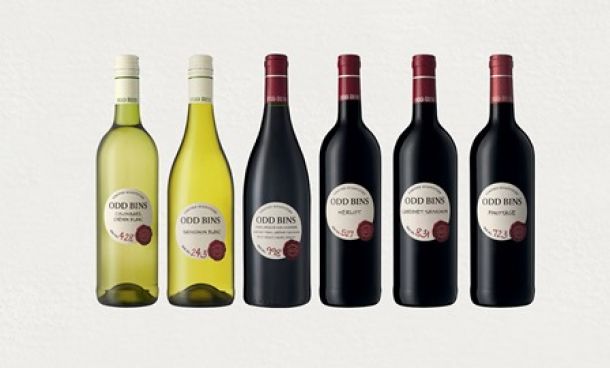Little wine cheer over Christmas
Wine drinkers may be in for a torrid time over the festive season as the domestic industry says it expects yield to drop 50percent because of the drought.
VinPro, the body representing the country’s wine producers, said growth in total market volumes and declining production meant that supply and demand could reach an equilibrium for the first time this season following years of surplus production.
It said stock level projected for the end of this year “will be the lowest in five years”.
While the local wine market has grown more than 14 percent over the past two years to at least 400million litres at the end of December last year, a leading wine merchant also warned of the impact the persistent drought would have on the lucrative sector.
Roland Peens, director of Wine Cellar, one of South Africa’s leading fine wine traders, said the dry conditions would decrease volumes and increase costs.
Peers said yields were forecast to decline as much as 25 to 50 percent next year.
“A significant drop in yield on an already unprofitable model means the industry will take a serious hit in 2018. The lack of rain during winter has left vines across the Cape without the required water reserves through summer,” said Peens.
The Western Cape, which has been in the grip of drought for the past two years, recently implemented level 5 restrictions, with Premier Helen Zille revealing that she showered briefly every third day.
The latest restrictions prohibit irrigation and washing of vehicles with municipal water.
Peens, who boasts about 20 years international fine wine experience, tasting on average 5000 wines per year, said high-yielding vineyards from inland regions that produce the majority of the country’s wine “will struggle to cope”.
But vineyards in Paarl and Stellenbosch, the heart of South Africa’s wine industry, seemed to be coping, according to leading independent viticulturist Jaco Engelbrecht.
“Black frost damage, specifically in the Breedekloof (Valley), disease pressure from small amounts of rain, and the continued drought will, however, decrease overall volumes and push up costs. Unlike the profitable fruit or nut production, South African wine can be replaced by Chilean, Australian or even Chinese substitutes if prices are nudged just a few percent.”
Nosey Pieterse, president of the Black Association of the Wine and Spirit Industry, said there were “opportunistic farmers” who would use the drought as a basis to fire farmworkers.
“We want to caution those farmers that we are going to demand they open their books, as per the prescripts of the Labour Relations Act, so we can see the impact of drought on their operations,” said Pieterse.
“From where I’m standing, I’m looking at the Winelands and don’t see a drought on those farms.
“The wine industry needs to be very careful."
Pieterse said the association would hold a stakeholder seminar this week to discuss the impact the drought could have on the industry. “We want to know the numbers and be consulted properly and not be informed via the media that there will be a loss of jobs.
“This will help us see what other alternatives are there.”
- BUSINESS REPORT
News Category
- International retailers
- On the move
- Awards and achievements
- Legislation
- Wine and liquor
- Africa
- Going green
- Supplier news
- Research tools
- Retailer trading results
- Supply chain
- Innovation and technology
- Economic factors
- Crime and security
- Store Openings
- Marketing and Promotions
- Social Responsibility
- Brand Press Office
Related Articles

Makro secures exclusive rights to SA’s most sou...

Checkers adds 41 new wines to Odd Bins range

With petrol at almost R20 a litre, food prices ...

Petrol price shocker for South Africa


